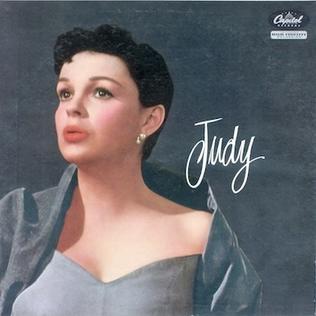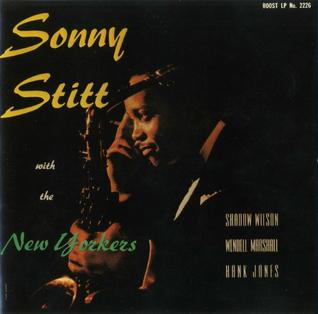
George Gard "Buddy" DeSylva was an American songwriter, film producer and record executive. He wrote or co-wrote many popular songs and, along with Johnny Mercer and Glenn Wallichs, he co-founded Capitol Records.
Ray Henderson was an American songwriter.

Lew Brown was a lyricist for popular songs in the United States. During World War I and the Roaring Twenties, he wrote lyrics for several of the top Tin Pan Alley composers, especially Albert Von Tilzer. Brown was one third of a successful songwriting and music publishing team with Buddy DeSylva and Ray Henderson from 1925 until 1931. Brown also wrote or co-wrote many Broadway shows and Hollywood films. Among his most-popular songs are "Button Up Your Overcoat", "Don't Sit Under the Apple Tree", "Life Is Just a Bowl of Cherries", "That Old Feeling", and "The Birth of the Blues".

The Black Bottom is a dance which became popular during 1920s amid the Jazz Age. It was danced solo or by couples. Originating among African Americans in the rural South, the black bottom eventually spread to mainstream American culture and became a national craze in the 1920s. The dance was most famously performed by Ann Pennington, a star of the Ziegfeld Follies, who performed it in a Broadway revue staged by Ziegfeld's rival George White in 1926.
"Button Up Your Overcoat" is a popular song. The music was written by Ray Henderson, the lyrics by B.G. DeSylva and Lew Brown. The song was published in 1928, and was first performed later that same year by vocalist Ruth Etting. However, the most famous rendition of this song was recorded early the following year by singer Helen Kane, who was at the peak of her popularity at the time. Kane's childlike voice and Bronx dialect eventually became the inspiration for the voice of cartoon character Betty Boop.
"The Birth of the Blues" is a popular 1926 song composed by Ray Henderson, with lyrics by Buddy DeSylva and Lew Brown. It was used in the Broadway revue George White's Scandals of 1926. It was recorded in its debut year by Paul Whiteman, Harry Richman, and The Revelers.
"It All Depends on You" is a 1926 popular song with music by Ray Henderson, lyrics by Buddy G. DeSylva and Lew Brown. The song, written for the musical Big Boy, was published in 1926. It was featured in the hit 1928 Warner Bros. film The Singing Fool, starring Al Jolson, Betty Bronson and Josephine Dunn, and directed by Lloyd Bacon.
"You're the Cream in My Coffee" is a popular song published in 1928. Hit recordings were by Annette Hanshaw, Ben Selvin, Ted Weems and Ruth Etting.

Follow Thru is a 1930 American pre-Code musical romantic comedy film photographed entirely in Technicolor. It was the second all-color, all-talking feature to be produced by Paramount Pictures. The film was based on the hit 1929 Broadway musical of the same name by Lew Brown, B. G. DeSylva, Ray Henderson and Laurence Schwab. The musical ran a total of 401 performances from January 9, 1929, to December 21, 1929. Jack Haley and Zelma O'Neal, who starred in the Broadway production, reprised their roles in the film version.

Good News is a 1947 American Metro-Goldwyn-Mayer musical film based on the 1927 stage production of the same name. It starred June Allyson, Peter Lawford, Mel Tormé, and Joan McCracken. The screenplay by Betty Comden and Adolph Green was directed by Charles Walters in Technicolor.

Good News is a 1930 American pre-Code musical film directed by Nick Grinde, and starring Bessie Love, Cliff Edwards, and Penny Singleton. The film was shot in black-and-white, although the finale was in Multicolor.

Flying High is a musical comedy with book by B. G. DeSylva, Lew Brown, and Jack McGowan, lyrics by B. G. DeSylva and Lew Brown, music by Ray Henderson. Set in Manhattan and Newark, New Jersey, the musical is about an inventor, Rusty Krouse, who is attempting to enter his "Aerocopter", in the upcoming 10th Annual Air Show at an airport.

Judy is a 1956 studio album by Judy Garland, her second LP on the Capitol label, arranged by Nelson Riddle.

Sonny Stitt with the New Yorkers is an album by the saxophonist Sonny Stitt, recorded in 1957 and originally released on the Roost label.
"The Best Things in Life Are Free" is a popular song written by the songwriting team of Buddy DeSylva and Lew Brown (lyrics) and Ray Henderson (music) for the 1927 musical Good News. It enjoyed a revival during the period from 1947 to 1950, when it was covered by many artists.

Life Is Just a Bowl of Cherries is an album by trumpeter Howard McGhee featuring songs from the musical film The Best Things in Life Are Free which were recorded in 1956 and released on the Bethlehem label.

Three Cheers is an American “new musical entertainment” in two acts, with a book by Anne Caldwell and R. H. Burnside, lyrics by Anne Caldwell, and music by Raymond Hubbell with additional lyrics by Lew Brown and B. G. DeSylva and additional music by Ray Henderson. The show was presented by Charles Dillingham and produced by R. H. Burnside at the Globe Theatre, and opened October 15, 1928.
"Lucky Day" is a 1926 song by written by Buddy DeSylva, Lew Brown, and Ray Henderson for George White's Scandals of 1926, along with "The Birth of the Blues". The song was first performed in 1926 by Harry Richman and chorus. The song has been covered by many artists. Popular recordings in 1926 were by George Olsen and by The Revelers.

Phyllis Avery was an American actress.
"The Varsity Drag" is a pop song written by Ray Henderson (music), Buddy DeSylva and Lew Brown (text) in 1927.










